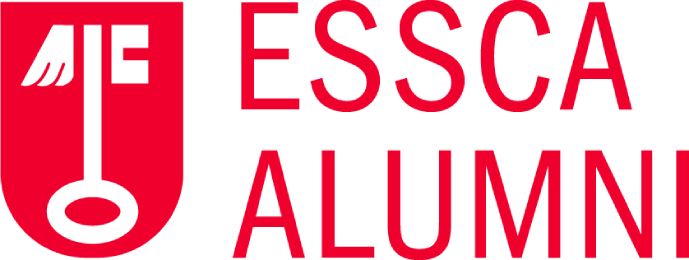How the École was born
Recallingthe circumstances that presided over the birth of the school, Director Paul BAUGAS had this to say in his speech on May 20, 1934, commemorating the school's 25th anniversary:
"Many merchants and industrialists are unable to follow the progress of their businesses as closely as they should (because) they have only the most rudimentary notions of the science of accounting (but) above all, because in the difficult and always uncertain business career, many other types of knowledge can greatly increase the chances of success.have only the most rudimentary notions of the science of accounting (but) above all because in the difficult and always uncertain commercial career, many other skills are likely to greatly increase the chances of success: first of all, a thorough understanding of the economic environment, certain legal concepts, the mechanism of operations on stock exchanges, particularly that of the futures market, the all-important foreign exchange operations, foreign languages and many other concepts. (...) "
Few professions require such a wide range of knowledge and qualities. Indeed, we should never tire of repeating that anyone who embraces a business career must, if he is to have any chance of success, be a consummate economist, psychologist, organizer, jurist, calculator, financier and accountant.
"These are skills that (...) must be learned and (...) require intelligence and hard work. Unfortunately, in our western region, there is still the prejudice that anyone can become atradesman, and that practice is more than enough. (...) By proclaiming the need for a methodical commercial education (we) could effectively combat this misconception, the source of so many setbacks and ruin, and serve the interests of the country. Thus was born the idea of creating in Angers, within the framework of our Catholic University, a higher education in commercial sciences .(Moreover) Catholic universities in Louvain and Lille, and the École Sainte-Geneviève in Paris (...) were pointing the way (...). Could we not, indeed should we not, follow their example? (A) commission immediately set to work (bringing together and studying) the programs of several leading schools, notably in Paris, Le Havre, Lyon and Bordeaux, but feeling that this was not enough, decided to launch a new program.But feeling that this was not enough, the committee decided to send a delegate, yours truly, to contact foreign schools in Antwerp, Brussels and Cologne, where the Director had this to say: "The credit for our commercial expansion belongs to our Écoles de Commerce. How many students do your few specialized schools have? Very few. Here, we have over 3,000!
The lesson had to be learned.
Everything was arranged so that the School could begin teaching at the start of the 1909 academic year, on November 4 to be exact. Eight students signed up for the entire curriculum, and 24 others for special courses outside the School. The first to sign up was Lionel DELAFOY, who was to become the first president of the Alumni Association when it was founded in 1921.

Paul BAUGAS concluded his assessment of the first quarter-century by emphasizing that the École could now compare favorably with all establishments with similar aims, and that the teaching it offered even surpassed, in terms of nature and number of subjects, and by far, in his opinion, that of the other Écoles supérieures de commerce.He went on to say that, in terms of the nature and number of subjects taught, the school's teaching even surpassed that of other Écoles supérieures de commerce by a wide margin.
There's no doubt that Paul BAUGAS's words could have been echoed by all his successors, without exception.
However, in his speech, the Director took advantage of the opportunity to address an issue which he alone seemed to fully appreciate. In this respect, he regretted that the School had not proceeded with a timely name change, which would have given it a specific identity, more in keeping with its well-established reputation as a leading engineering school. identity, more in keeping with its well-established reputation for excellence and the now unanimous recognition of its prestige.
It was only two years after the retirement of its founder in October 1943 that "ESCA", "l'École Supérieure de Commerce d'Angers", would officially adopt the famous acronym ESSCA, incorporating the famous "Commercial Sciences" into its acronym. "There were two reasons for this, as explained by the new Director Jacques NEVEU (1941/1952) at the Conseil de Perfectionnement meeting on December 4, 1943:
"Firstly , to avoid confusion with semi-public business schools known as "écoles supérieures de commerce reconnues par l'Etat", and thus enable them to be recognized by the French government. Firstly, to avoid any confusion with semi-public business schools known as 'state-recognized business schools', and thus enable eventual recognition by the state - this name change being a prerequisite - but also to move closer to the ESSEC of the Institut Catholique de Paris. "
On this occasion, an agreement was signed to allow the very best ESSEC students to continue their studies directly into their second year, and later into their third year in 1951.It goes without saying that this agreement authenticated the seriousness and quality of the training provided in Angers at the time.
In any case, it would take nearly thirty years and the Trademark Act of December 31, 1964 for the ESSCA acronym to become the School's property.This came after a lengthy four-year legal battle with a lesser Parisian establishment, which was contesting ownership.
Today, there's no room for equivocation. ESSCA has earned its stripes as a Grande École. Now established on four sites in four countries, with national and international recognition, the school has become the benchmark business school for post-Baccalauréat recruitment. Its influence is indisputable.
Invoking the spirits of our founding father, we can only repeat this cry from the heart:
"We can and must be proud of our name, because through it, merit and hard work are recognized. As such, I have no doubt that all future students will be keen to assert this identity and the heritage of the classes that preceded them. "




